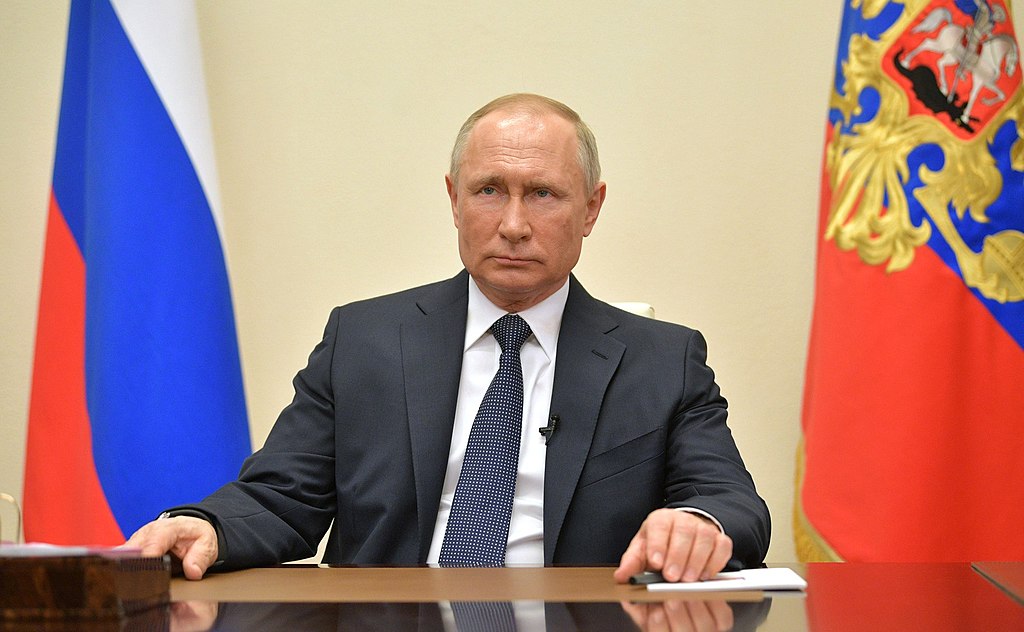The Russian dictator, Vladimir Putin, has vaguely threatened the Estonian eastern border town of Narva, saying that the Russian czar, Peter the First, didn’t conquer the town but “took it back” from Sweden – even though it had always been an Estonian town; he used the comparison to justify his own plans to invade the neighbours of Russia.
Putin met with the young entrepreneurs, engineers and scientists at the Moscow People’s Economy Accomplishment Exhibition’s innovation and education centre, Technograd, and compared himself with Peter the First and said that the czar didn’t conquer Narva and other areas under the Swedish control, but took them back, according to Delfi.
He said the world was changing and to be a leader, every country and nation had to secure its sovereignty. According to the Russian dictator, there is no middle ground – a country is either independent or a colony. He added that if a country can’t make independent decisions, it’s already a colony to a certain degree and a colony didn’t have – from a historic perspective – any chance to survive in such a tough geopolitical fight.
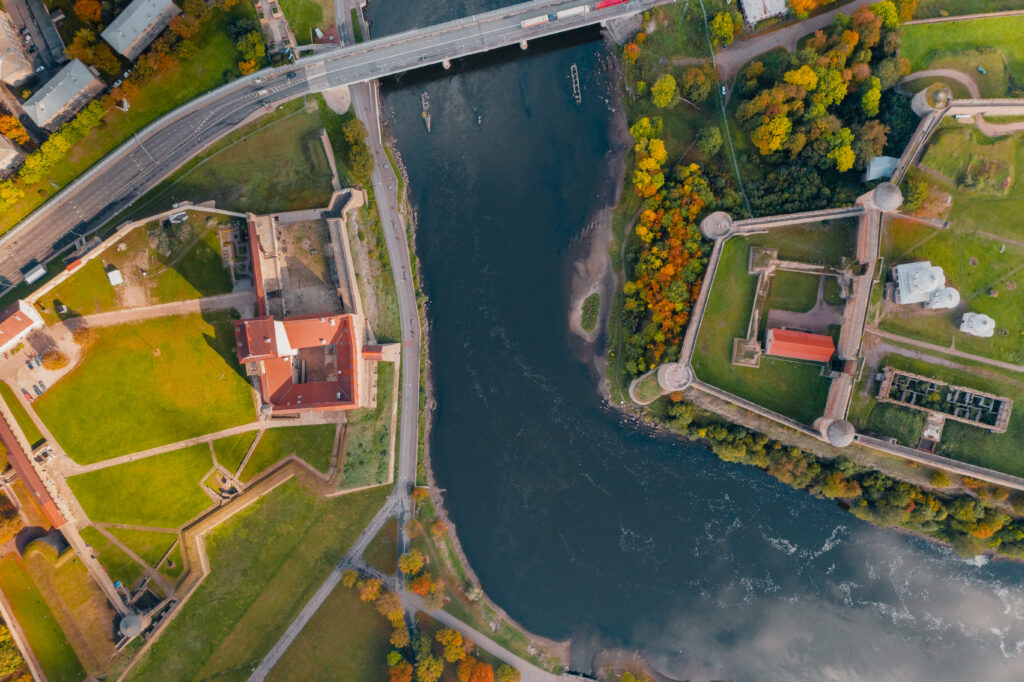
“Peter the First waged the Great Northern War for 21 years. It appeared as if he was fighting with Sweden, conquered something. He didn’t conquer anything, he took back! That’s how it is. All the area by the Ladoga Lake where St Petersburg was established. When he created the new capital (St Petersburg – editor), no European country regarded it as the Russian territory; everyone thought it was Sweden. But from ancient times onwards, Slavic people have lived there alongside the Fenno-Ugric ones, and this territory used to be under the Russian control.”
“Also, in the western direction – meaning Narva, his first invasions. Why did he go there? He took back and secured – that’s what he did,” Putin claimed, according to Delfi.
“Deciding by everything, we, too, must take back and secure. And if we come from the perspective that these base values are the basis of our existence, we can succeed in accomplishing the tasks that are in front of us,” the dictator added.
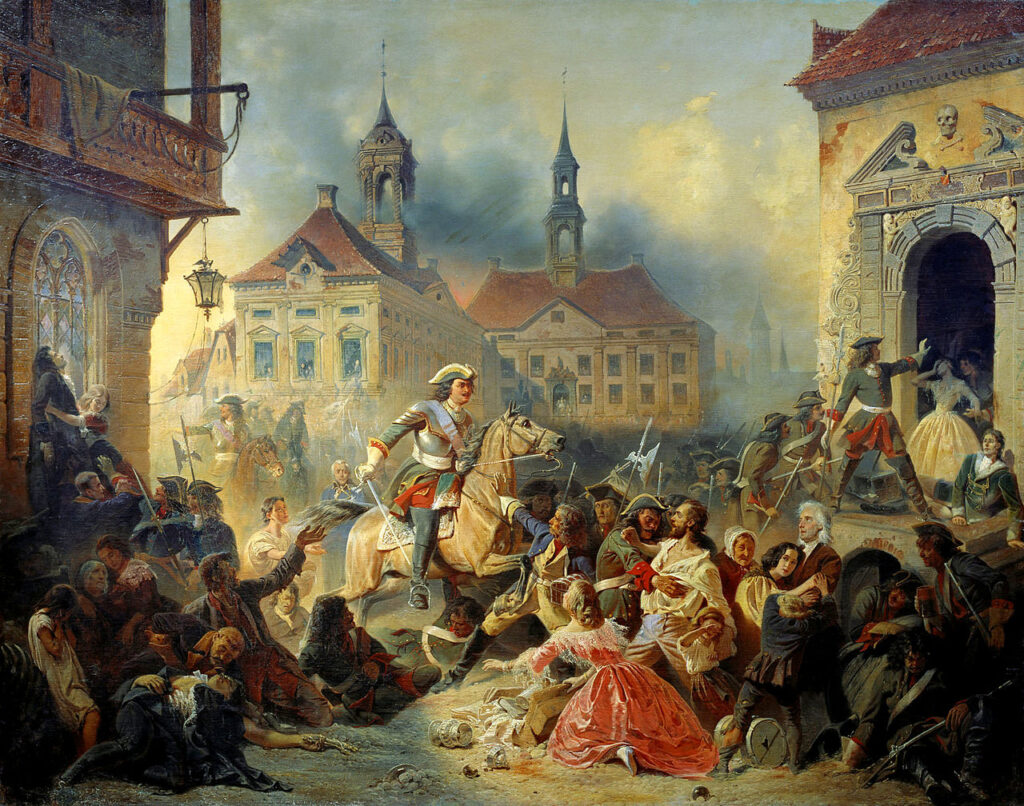
Narva is an old Estonian town
Delfi explains that, when we look at the Estonian Encyclopedia, then in the beginning of the 13th century, there was an eight-acre village – called Narvia – at the Narva River. In 1256, a governor of the Danish King created a fortress by the river – presumably where the future town was built. In the 13th and 14th centuries, a town-like entity was created around the fortress. Narva has been named as a town since 1345 when it was given the Lübeck town rights.
The Russians conquered Narva only on 12 May 1558; however, on 6 September 1581, the town went to the Swedish control. Peter the First conquered Narva on 20 August 1704, Delfi adds.
During the Second World War, the Soviets bombed Narva to the oblivion and forced the Estonian residents of the town to flee – including the great grandparents of this writer who put their earthly possessions, or what they had left, on a cart and walked to Tallinn, the capital city of Estonia. The Soviets went on to repopulate the town by deporting ethnic Russians from elsewhere in Russia to Narva, thus ensuring that the town would be an ethnic Russian one for decades to come.
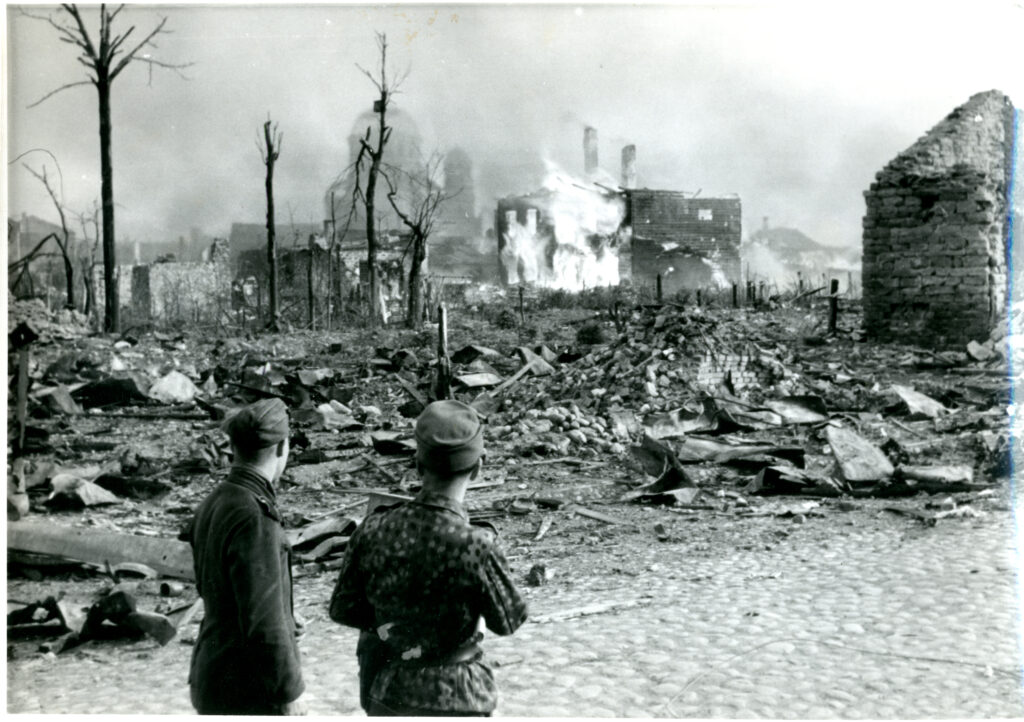
After Putin’s statements, the Estonian foreign ministry summoned the Russian ambassador to Tallinn, Vladimir Lipaev, to condemn the Russian dictator’s comments. The foreign ministry’s undersecretary, Rein Tammsaar, expressed regret over the comments to the ambassador. “At a time when Russia is implementing its revanchist policy informed by the Russkyi Mir ideology by trying to destroy the statehood and people of Ukraine, it is also completely unacceptable,” the foreign ministry said.
“Russkiy Mir”, that the foreign ministry is referring to, is a Russian quasi-ideology aimed at the expansion of influence abroad and uniting the states considered by the Kremlin as its backyard on the basis of Russian language common history in the Moscow’s perception and the Russian Orthodox Church.
The Estonian foreign ministry also said that considering “Russia’s aggression against Ukraine, the bill submitted to the Russian State Duma this week proposing to annul the regulation that recognised the independence of Lithuania and threats of ‘denazification’ and ‘demilitarisation’ against other countries are dangerous and irresponsible. Instead of striving towards respect for international law and basing its actions on the principle of the sovereignty and territorial integrity of states, Russia has attempted to use propaganda in addition to the army to implement its imperialist ambitions, including by falsifying history. This approach is doomed to failure and can eventually threaten Russia itself.”
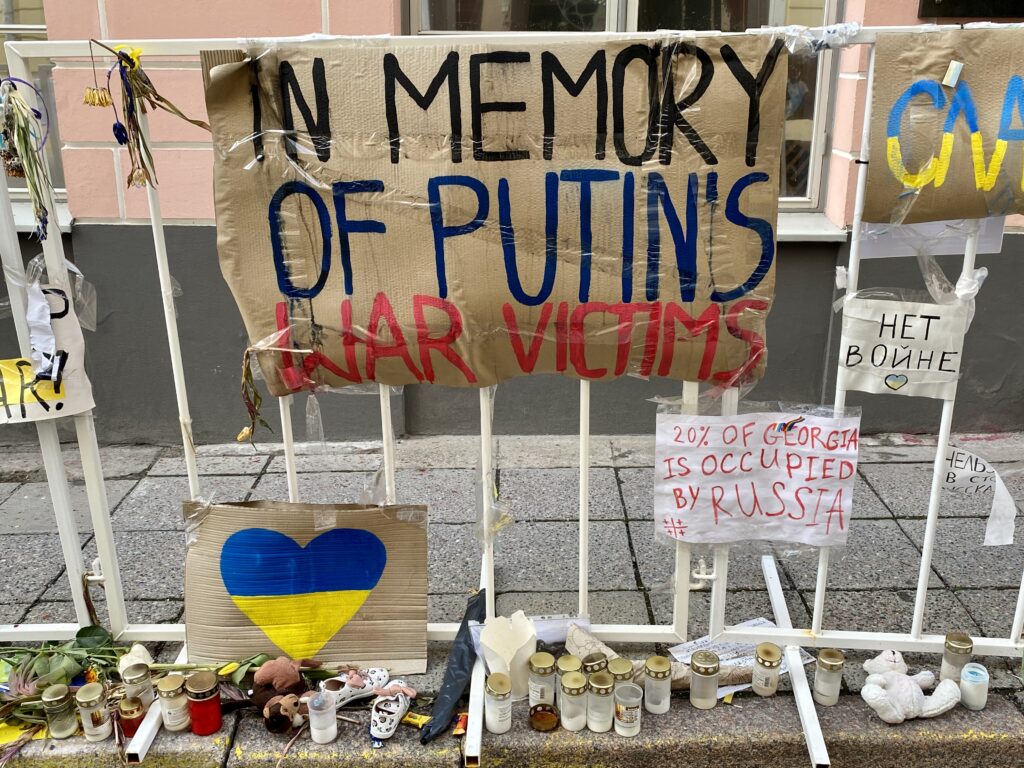
Russia wants to repeal the independence of Lithuania
Yevgeny Fyodorov, a member of the Russia’s ruling United Russia party – the party of Vladimir Putin – submitted a bill to the lower house of the Russian parliament that calls for repealing Lithuania’s independence, claiming Lithuania illegally left the Soviet Union in 1990. The issue is related to the fact that the European Union’s air space is closed to Russian aircraft after the Russian unprovoked invasion to Ukraine and the Russian aircraft have to fly to the Kaliningrad enclave around Estonia, Latvia and Lithuania, in international air space, making the journey considerably longer than, say, flying straight from Moscow to Kaliningrad.
If Russia invalidated Lithuania’s independence, however, it could claim it could fly its aircraft through the Lithuanian airspace directly to Kaliningrad. The move would be hardly welcomed by Lithuania, the European Union and NATO – of which Lithuania is a member – and that would escalate the tensions between Russia and the Western world even further.
Read also: Updates: Russia’s invasion of Ukraine – reactions in Estonia.

